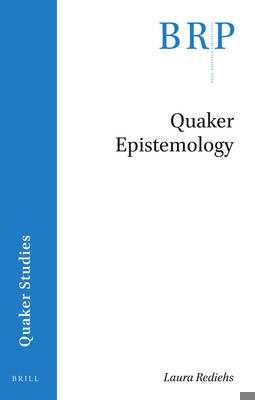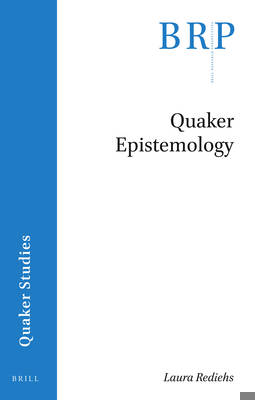
- Afhalen na 1 uur in een winkel met voorraad
- Gratis thuislevering in België vanaf € 30
- Ruim aanbod met 7 miljoen producten
- Afhalen na 1 uur in een winkel met voorraad
- Gratis thuislevering in België vanaf € 30
- Ruim aanbod met 7 miljoen producten
Zoeken
Omschrijving
Quakerism (the Religious Society of Friends) emerged in the seventeenth century, during a time when philosophical debates about the nature of knowledge led to the emergence of modern science. The Quakers, in conversation with early modern philosophers, developed a distinctive epistemology rooted in their concept of the Light Within: a special internal sense giving access to divine insight. The Light Within provided illumination both to properly understand the Bible and to 'read' the Book of Nature. In Quaker Epistemology, Laura Rediehs argues that Quaker epistemology can be thought of as an expanded experiential empiricism, integrating ethical and religious knowledge with scientific knowledge. This epistemology has carried through in Quaker thought to the present day and can help address today's epistemological crisis. This work will be of great interest to both philosophers interested in the epistemological implications of Quaker thought, and scholars of Quaker Studies interested in connecting Quaker thought to philosophical historical epistemology.
Specificaties
Betrokkenen
- Auteur(s):
- Uitgeverij:
Inhoud
- Aantal bladzijden:
- 100
- Taal:
- Engels
- Reeks:
Eigenschappen
- Productcode (EAN):
- 9789004419001
- Verschijningsdatum:
- 10/10/2019
- Uitvoering:
- Paperback
- Formaat:
- Trade paperback (VS)
- Afmetingen:
- 155 mm x 231 mm
- Gewicht:
- 181 g

Alleen bij Standaard Boekhandel
+ 286 punten op je klantenkaart van Standaard Boekhandel
Beoordelingen
We publiceren alleen reviews die voldoen aan de voorwaarden voor reviews. Bekijk onze voorwaarden voor reviews.











